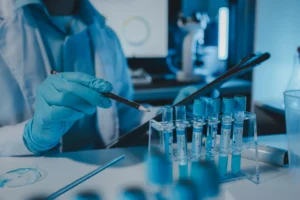In cancer supportive care, chemotherapy, radiotherapy, and targeted therapies target the tumour but also bring oxidative stress, chronic inflammation, neurotoxicity, and immune suppression, often leaving patients feeling fatigued, in pain, and with reduced tolerance.
Natural compounds (such as curcumin, quercetin, EGCG, resveratrol, alpha-lipoic acid, Reishi polysaccharides, etc.) play an increasingly important role in the adjunctive phase.
They not only help clear free radicals and reduce oxidative damage but also act from multiple angles — anti-inflammation, neuroprotection, immune modulation, and energy support — allowing patients to better endure the burden of treatment, maintain strength, and improve quality of life.










